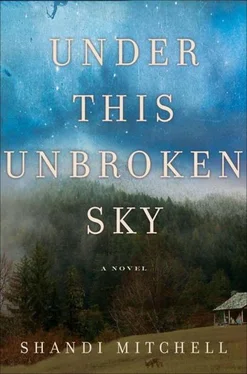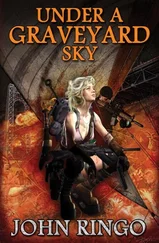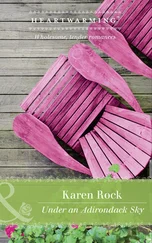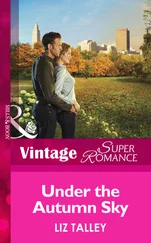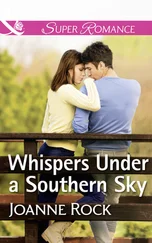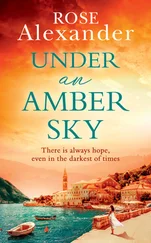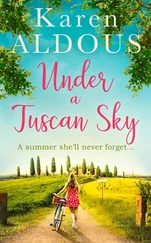THE WILLOW CREEK WEEKLY
Willow Creek, Alberta, Canada, Saturday, September 8, 1938
FIRE DESTROYS 90 HECTARES
5 FARMS LOST, 7 PEOPLE DIE
(By Joffre M. Dechene)
The farm home of Mr. and Mrs. Philip Normand, forty miles north and west of Willow Creek, burned this Thursday morning.
The fire started while Mr. and Mrs. Normand were milking. Noticing the smoke, Mr. Normand rushed into the burning building to get the two children, who had left the house and were sitting in the automobile. Mr. Normand, who did not know this and who looked for them until convinced they were safe, suffered severe burns about the face, arms, and hands. He received treatment at the General Hospital, but tragically later died. The fire spread quickly to nearby bush and fields and was driven south by unusually high winds. Exceptionally dry weather is partially blamed for the fast-moving fire. Smoke could be seen as far away as Vermilion. The town of Willow Creek escaped tragedy, likely due to the railroad tracks that diverted the fire south.
John Chubey was not so lucky. Despite his neighbor, Albert Limoges, warning him to pack up and leave as quickly as possible, Mr. Chubey and his family stayed to fight the fire. Three children, aged six to twelve; Mr. Chubey; his wife, Mrs. Margaret Chubey; and her brother Gunther Mann all perished when they became trapped near the barn, possibly trying to save the horses. The horses, an Appaloosa and a palomino, were found sixty miles south, near St. Paul, on Friday.
THE FIRST SNOW FALLS OCTOBER 12, WHILE EVERYONE is sleeping.
Teodor sees it when he wakes up at four to throw another log on the fire. Large wet flakes drifting softly down, blanketing the gray-brown remnants of fall. He steps outside for a smoke. At least he got the field up in time.
He was expecting the six acres would average thirty bushels an acre, giving him one hundred and eighty bushels. After the fire, he harvested seventy-eight. Hold back fifteen bushels for seed crop and four for flour, that leaves fifty-nine. At ninety-three cents for grade one, that’s $54.87. If the prices hold. On the safe side, it’s eighty cents. That’s $47.20. Less ten dollars for Anna to pay the homestead fee, that’s $37.20. Less feed, nails, and hardware for a new barn, barbed wire. He’ll have to build a granary next summer, he can’t expect to store the wheat at his sister’s again. He was hoping to get a pig or another horse, but that’ll have to wait. He’ll have to buy a side of beef to get through the winter. He could use another shovel, a couple of barrels, the harness can’t wait, he needs to get the horse shod, the children need winter boots, none of their coats are warm enough for a bad winter, there’s the baby coming… and Anna’s baby. He has to calculate the upkeep for her place, their food, and her children don’t have proper boots either.
He takes a deep inhale of the smoke until the heater burns his fingers. He flicks the butt into the snow.
And tobacco… he exhales.
AFTER HIS FATHER’S MEASURED BOOT PRINTS HEADING across the field to Anna’s to check on the animals and Myron’s shoeprints crisscrossing back and forth to the woodpile, Ivan’s feet are the next to run through the new fallen snow. He zigzags back and forth, kicking up curves, sliding on his toes until his heels catch, and he barrels forward spraying black earth on white. He finds an alder switch and drags it behind him, drawing looping circles and squiggly bits. Then he closes his eyes and takes two steps forward, listening to the scratch of the stick against the fresh, new snow. He takes two more steps.
MARIA LOOKS OUT HER WINDOW AT THE THIN WHITENESS blanketing the prairies. It flattens the hills, gullies, wagon ruts, and furrows into smoothness, swallows up the shadows and illuminates the smallness of their lives. She shivers, even though the fire is roaring. Perhaps it’s the draft from the window. She watches Teodor, black against the white, disappear just the other side of the stone wall. She knows it is an optical illusion, that he’s in the dip, but her heart tightens.
This is just a dusting, she scolds herself, this isn’t even winter. A moment later, he reappears. She chastises herself for her silliness. Soon she won’t be able to see him at all. He’ll turn right at the round boulder and come up on the paddock from behind trying to surprise the horse, but it will be waiting for him. It always knows when he’s coming. Teodor would be disappointed if it didn’t. He’ll feed it and brush it. Talk to it.
Maria often saw him running his hand down its mane, across its neck. Its head nuzzled into his chest. His mouth close to its ear. Telling it what? All his secrets? Everything he can’t say to her? Using up all the words, so by the time he gets home, he is silent again, shoulders stooped into himself. He pretends—smiling, joking with the children, listening to their stories, talking but saying nothing. The fire burned a part of him away. He will heal. Come the spring, once the scorched field yields life again, he’ll forget what was lost and see what he has.
She looks up at the black smear of smoke suspended off in the distance. Anna’s keeping the woodstove burning. That’s a good sign. She hasn’t hurt herself since the summer. She’s not hiding the pregnancy anymore; granted, that would be difficult at seven and a half months. All Maria told Teodor was that his sister was pregnant. That was enough. He wanted to go to town to find that good-for-nothing son of a bitch Stefan and beat some responsibility into him. Maria pleaded with him not to go, but it was Anna who told him she didn’t want Stefan back. Things were better now.
Maria feels the baby turn in her belly, a flutter of butterflies. She rubs her belly reassuringly . It’s okay, little boy, it’s only snow. He must be close to four months now. He’ll be a March baby.
She knows it’s a boy: he came to her in her dreams. She asked him: Are you all right? He said, Yes, I’m fine. She asked him if there was anything wrong with him. He said no. She asked, Are you sure? He said, Yes. I have a birthmark. She told him: That’s what will make you special. And right then she knew everything would be fine.
Teodor reappears. He walks straight, never veering, his trail cutting the prairies in half. In a few hours, she’ll walk the same path to take lunch to Anna. Since the dust storm, it’s been a daily trek. She tells Teodor that his sister needs company, that it’s hard for a woman to be alone when she’s expecting. She doesn’t really mind going, though lately she’s been feeling the strain of carrying an extra ten pounds. Her lower back aches and by nightfall she can barely keep her eyes open. But it’s a chance to walk with her thoughts, check in on her sister-in-law and the children, milk the cow, and still get home in time to make supper. It’s a way to make sure nothing happens.
Every trip is the same. First Anna eats. She eats and eats and eats. Maria doesn’t eat with her. She keeps count of how many eggs, how many potatoes, how many jars of preserves, how much bread, how much milk… and calculates the impact on their winter stores. Sometimes she intervenes and covers a jar of dill pickles or pickled eggs—and puts it on the shelf, suggesting that maybe she should save some for tomorrow. But when Maria returns the next day, the jars are empty and more have been opened.
After she’s finished eating, Anna allows Maria to examine her belly and tells her of any physical complaints. Maria prepares a tonic. This one for back pain, this one for constipation, this one for nightmares. She rubs honey and butter onto her stretch marks, massaging the baby. At this point, Anna always looks away. Once Maria has finished the exam, she wipes down the table, cleans the dishes, throws a log on the fire, and sits in the chair closest to the stove. Once enough silence has passed, Anna tells her stories.
Читать дальше
